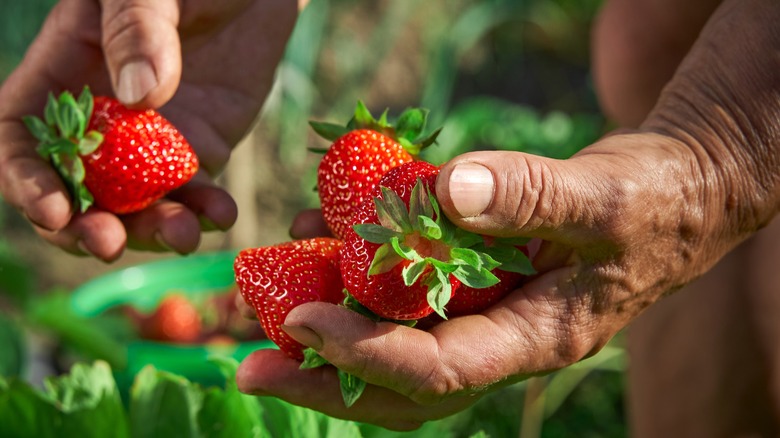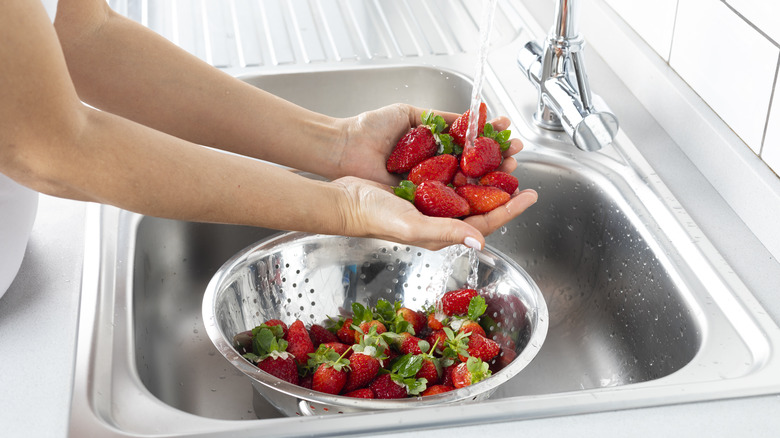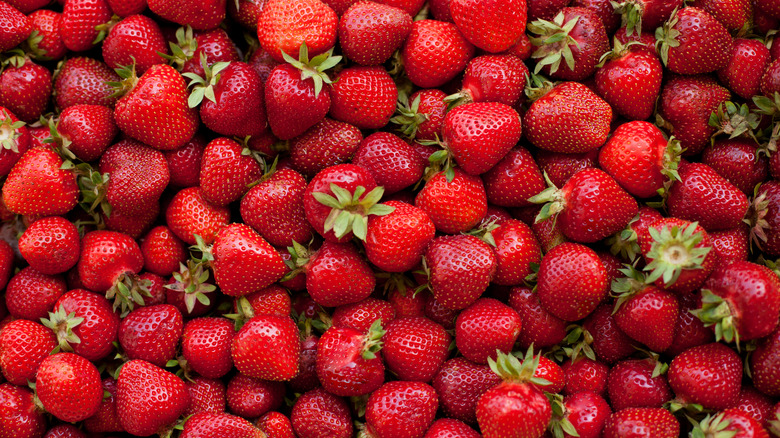Should You Clean Strawberries With Vinegar?
Strawberries are deliciously sweet and a perfect addition to any fruit smoothie. Plus, they are good for you. Strawberries are not only low in calories but are also full of antioxidants and beneficial vitamins. However, since strawberries have landed at the top of the dirty dozen list of foods with the most pesticide residue, many shoppers have worried about whether or not they should really consume strawberries and, if they do, how to wash them best to remove any pesticides. Many websites suggest cleaning strawberries with vinegar as the answer, but does this really work?
As it turns out, while vinegar is touted as a natural way to remove harmful bacteria and pesticides from fruits, it may not be as beneficial as you think. In fact, while there are some situations where it may be a good idea to use vinegar, it turns out that most of the time, just washing your fruits in cold water is enough. So, how do you know whether or not you should be using vinegar to clean your strawberries?
The reasons for and against using vinegar to wash strawberries
The reason against using vinegar to wash your strawberries is very simple –- you probably don't need to. This is because, according to two professors from Auburn University in an interview with Best Food Facts, washing fruits with cool and clean water was shown in research to remove almost all present bacteria. So, if it's germs you're worried about, rinsing your strawberries well in the sink is probably the best method. Furthermore, according to the University of Minnesota, the pesticides that might still be on store-bought fruits and vegetables are easily washed away with water — no vinegar necessary.
So, should you ever use vinegar to wash strawberries? If you want to get some extra peace of mind by using more than just water to clean your fruits and veggies, then vinegar might still be the best option. Vinegar is likely better than other fruit-cleaning soaps on the market that, according to the University of Colorado, aren't fully regulated and may contain harsh chemicals that can be absorbed into the fruit. Also, while vinegar is not necessarily recommended to clean strawberries, it is recommended to clean other fresh foods, especially leafy greens like spinach. So, while it hasn't been proven to actually help, vinegar also will not cause any harm if you want to use it for some extra oomph.
What can vinegar do for your strawberries?
If you want to extend the shelf-life of strawberries, there is some evidence that vinegar can help with that. In fact, according to Utopia, a news site focused on sustainability, vinegar helps wash away mold spores which may cause your strawberries to stay fresher for longer. However, this trick works best when you start with fresh strawberries in the first place because vinegar cannot reverse the process of deterioration for strawberries that have already started to go bad. There are a few tricks to buying the freshest strawberries that can help you with this.
Besides the possibility of helping strawberries stay fresh, vinegar has no other proven benefits for these bright red and tasty berries. If you are worried about the amount of pesticide residue present on the fruit and don't trust clean water to get the job done, the best option is to buy organic strawberries and avoid the pesticide problem altogether. Also, don't let the news about pesticides on strawberries scare you! Because despite this, there are still plenty of reasons why you should eat more strawberries, not less.


